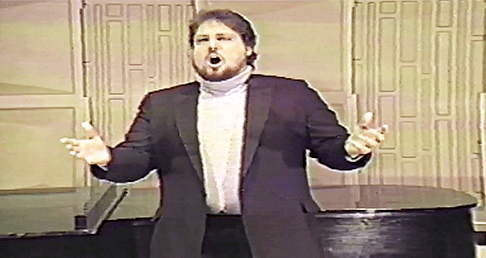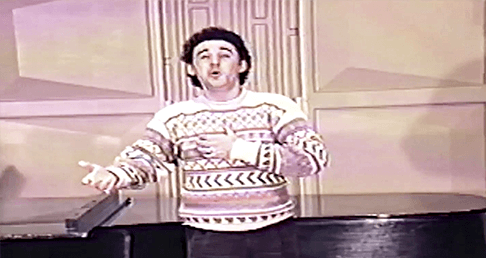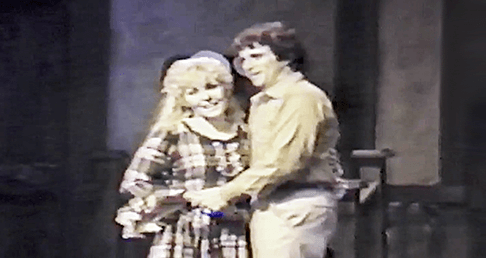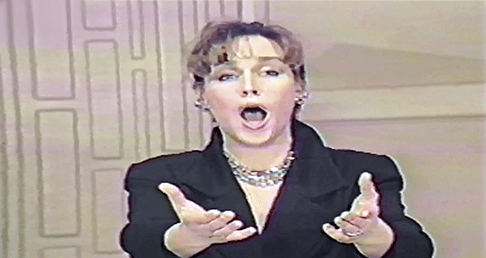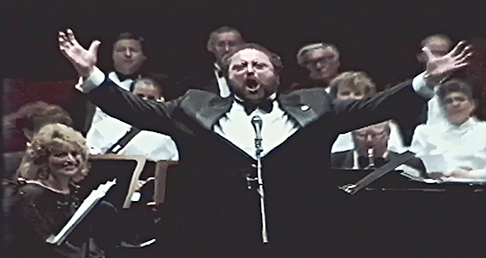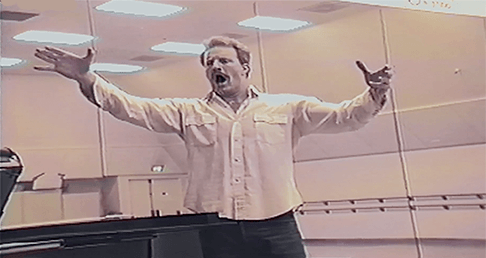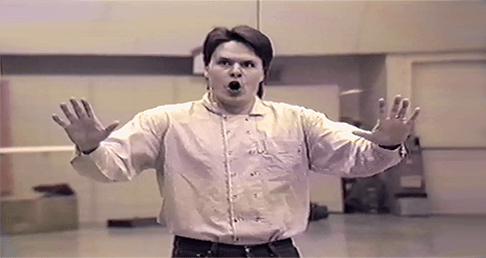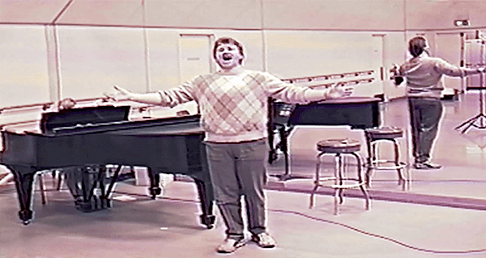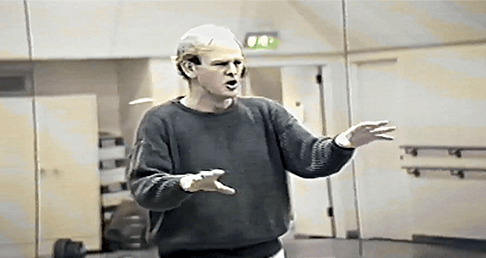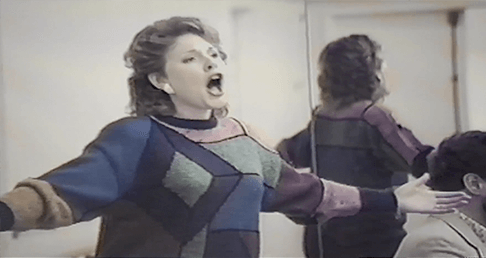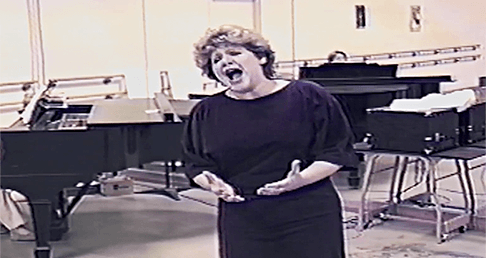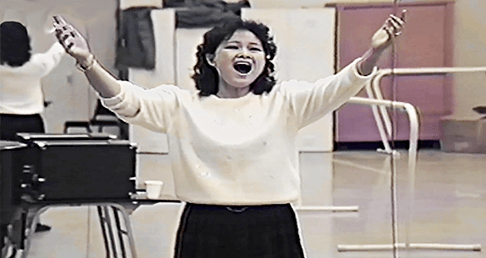About Dan
Dan Balestrero has taught vocal technique for actors and voiceover artists for 30 years. He currently has 82 corporate voiceover clients and has provided voiceovers for over 450 corporations. His voiceover artists have worked for CBS, ABC, NBC, the WB, FOX, Dream- Works, Paramount, Disney, Tribune Broadcasting, Direct TV as well as virtually all the other major advertising agencies and Motion Picture Studios.
An approach to voiceovers, voice development and voiceover success
 From the time I was very young, I wondered how speech worked. I had always wondered about what made some people fun to listen to, and other people dull. I was amazed at how inspiring some people were and how depressing others were. I remember, as a young boy, having to go to a speech therapist who was helping me with an articulation problem, and being shocked when she said to me in an angry manner ‘No, can’t you hear you’re saying it incorrectly?” That was the start of my career, because I remember thinking to myself, “there must be a better way to teach this stuff than this!” That was the beginning of my passion for acting, singing, expression, and speech.
From the time I was very young, I wondered how speech worked. I had always wondered about what made some people fun to listen to, and other people dull. I was amazed at how inspiring some people were and how depressing others were. I remember, as a young boy, having to go to a speech therapist who was helping me with an articulation problem, and being shocked when she said to me in an angry manner ‘No, can’t you hear you’re saying it incorrectly?” That was the start of my career, because I remember thinking to myself, “there must be a better way to teach this stuff than this!” That was the beginning of my passion for acting, singing, expression, and speech.
When I was in college, I happened to be doing simultaneous projects in the drama department as well as the music department. I was playing “Richard II” which is a very long role, and on alternating nights I was singing Pimen in “Boris Godunov.” There’s an old joke that people who thought they could shout their way through plays, and scream their way through operas, found Fate waiting for them in Verdi and Shakespeare. This was a mind-blowing revelation on the need for vocal efficiency. I realized I couldn’t fake technique, I had to develop technique. I was lucky to be in an extremely demanding situation that clarified the need for learning my craft.
My beginnings in voiceovers
As a young man in college I was doing plays and singing and found that I could make great money doing voiceovers and narratives for projects that were all around me. I was also coaching a lot of actors and singers. As word spread that I was an effective teacher a very successful man from the Hollywood voiceover world called. Basically, he was having a vocal rough spot and wanted help fixing it. He had heard some positive things about me from people I had coached. We started working together and I was able to fix the vocal problems he was having. Moreover, his “control was better than ever”. Amaz- ingly, in all the years of doing voiceover—no one had ever taught him the basic princi- ples of vocal production. And that’s when I realized that people spend years trying to learn how to act and how to read copy, but too few people invest time developing the engine that does all the work... the voice. The issues of breathing and cadence and voice development—were almost never addressed. So thirty years ago I realized all over again that the voice is a wind instrument and vocal principles have to be learned to maximize naturalness, efficiency, responsiveness and vocal health. Yes, people get a lot of good advice and performance coaching, but unless they have mastery and understanding of their vocal instrument, they can’t do what they hear in their head. Or they can’t take direction because they don’t have enough vocal control.
It all starts with the voice
That’s why they call it voice over. It’s important to understand that many performers have never really been introduced to the wonderful subtlety and range of their vocal instrument. Yes, some have intensely studied Strasberg, or Hagen, or Meisner, but when it comes to that first point of contact—their voice—most have only touched the tip of the iceberg. Strangely, this is sometimes even true with professional voiceover people. Often they bank on their vocal quality, but not their vocal training. You hear it some times, people struggling with their vocal production in little ways... the breathing may be off here and there, the voice is a little pinched on the end of a phrase—these are the things that limit our ability to read copy persuasively and well. I’ve seen it time and again, where the guy who gives the smoothest, most “spontaneous” and conversational reading beats out the more powerful, but less trained voice. Essentially, ultimately, we hear the control manifested as simple, natural communication.
Your best chance of getting work... is to be yourself
As you work on technique, it becomes a part of how you respond. It must become part of your natural unforced reaction to reading copy. We practice a golf swing so we can be carefree and have fun on the golf course. The purpose of technique is to set us free, not to give us a list of things to worry about. Technique allows us to express what we are thinking in an accurate way and enables us to take direction and render the cli- ents copy in a way that brings their narrative to life whether it’s a national commercial, movie trailer, corporate narrative or an audio book.
Chicago Opera Singers
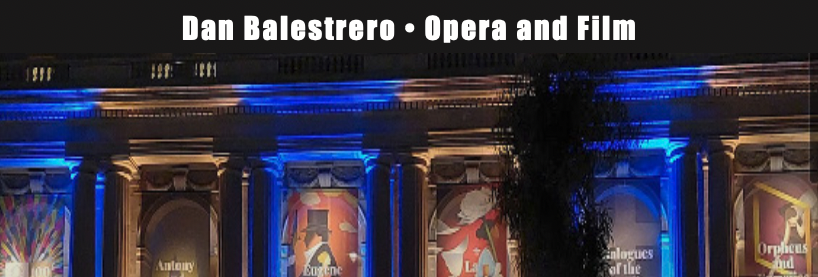
Opera
Dan Balestrero has enjoyed a long career on stage, directing, acting, voice acting and singing.
What you may not know is Dan spent the 90’s as a voice coach for some of the most successful and talented opera singers in the country.
Below are videos from his coaching of the San Francisco Opera Adler Fellows and his large studio of Singers from his 5 years in Chicago.
“For those of you who enjoy opera sung by the world class talent, I’m happy to share the nostalgia and joy from the rehearsals we had at that wonderful time.”~Dan
Film Projects
Dan Directed the films: Scaling The Wall, The documentary of San Francisco Opera’s trip to China as well as The Long Christmas Dinner by Hindemith for San Francisco Opera for the American Professional Premier.
Dan was the voice of Vincent Van Gogh in the documentary Becoming Van Gogh.

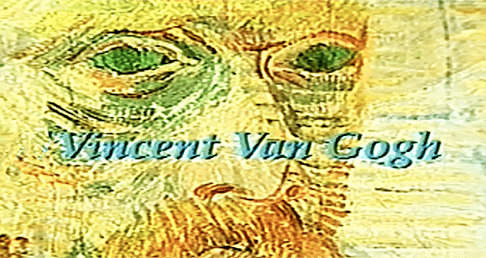
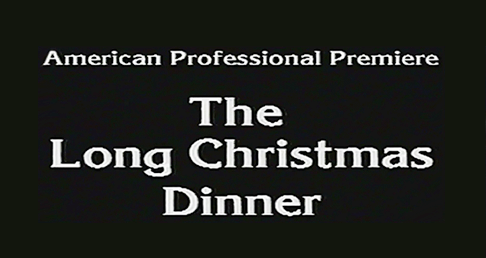

Ray Arbizu was Dan Balestrero’s voice teacher and mentor for 30 years. He’s singularly responsible for Dan’s coaching technique and success at San Francisco Opera and Chicago Opera.
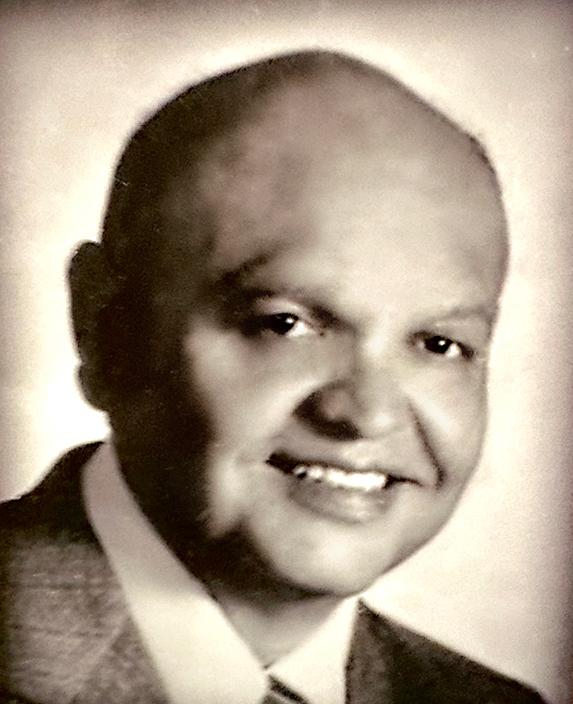
- 01 Ah si, ben mio_ coll'essere... (Il Trovatore).mp3
- 02 Addio alla madre (Cavalleria Rusticana).mp3
- 03 La donna e' mobile (Rigoletto).mp3
- 05 Angelo casto e bel (Duca d'alba).mp3
- 06 Di quella pira (Il Trovatore).mp3
- 11 La Siciliana (Cavalleria Rusticana).mp3
- 12 I Hear You Calling Me.mp3
San Francisco Opera Adler Fellows

